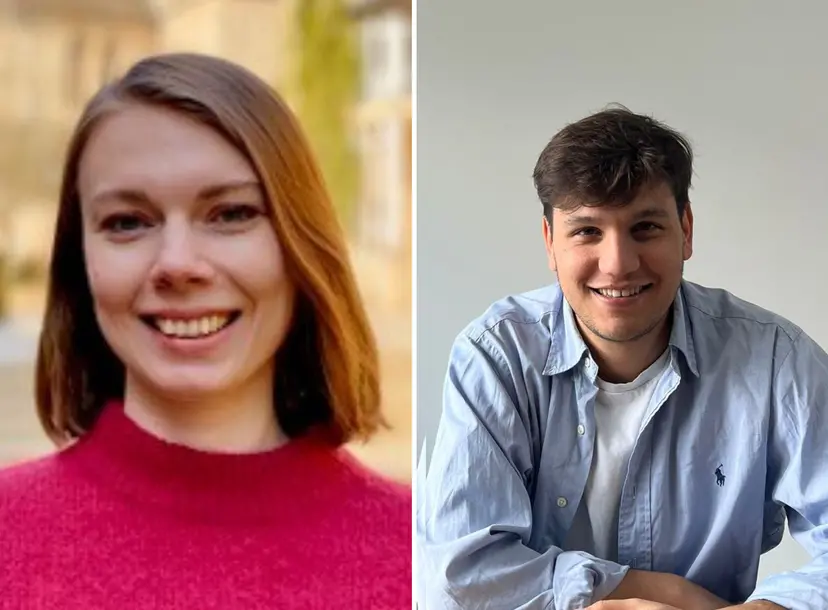Collaborative explorations of childhood by amateur scientists, and historical insights into climate change, sustainability, and disaster resilience are the focus of the latest research to be undertaken at the Royal Institution (Ri) it was announced today.
Julia Gustavsson from St Peter’s College, University of Oxford, and Gennaro Ambrosino from the University of Warwick will complete their PhD history of science research in the forthcoming academic year, having been appointed as Ri Freer Trust Fellows following a competitive open application process.
As Ri Freer Trust Fellows, Julia and Gennaro will each benefit from significant opportunities to communicate their research with the support of the Ri, as well as receiving guidance for publication plans and further research grant applications, training in science communication and engagement, and a stipend funded by the Phillip Freer Studentship Trust.
Dr Sophie Forgan, a Trustee of the Philip Freer Studentship Trust, said: “The Freer Trust was established to support postgraduate students whose work in the history of science could make a difference and engage the public with compelling research. With applications from a wide variety of institutions, we are delighted that the judges were impressed by the range, quality and ambition of the research being undertaken.
“The Trust has appointed two new Fellows for 2025-26. Their work addresses questions in 20th century child development research and in 18th and 19th century writing about volcanoes and archaeological ruins, including the contribution of pioneering scientists such as Humphry Davy and Charles Lyell.
“Both these areas of research have the potential to make a significant contribution at the Ri, to public interest in science and in aspects of its own history, and in turn for the prize-winners to benefit from the experience and knowledge of the Ri in science engagement.”
Katherine Mathieson, Director of the Royal Institution, said: “I am delighted that Gennaro Ambrosino and Julia Gustavsson have been appointed as our 2025 Freer Trust Fellows. Their fascinating research and excellent communication skills means they are ideally positioned to continue the Ri’s heritage of research, discovery and public engagement.”
Through his PhD thesis, ‘Writing the Deep: Volcanoes, ruins and the unconscious in Italy during the Revolving Century (1760-1840)’, Gennaro Ambrosino explores how in the eighteenth and nineteenth centuries scientific and literary responses to volcanoes, earthquakes, and deep time — especially in Southern Italy — have shaped our modern understandings of nature, disaster, the unconscious, and memory. As a Freer Prize Fellow, Gennaro is seeking to amplify the impact of his research, bridging science, history, and imagination in ways that resonate far beyond academia.
While in ‘Domestic pastime? Gender, class, and profession in the British Child Study Movement 1894-1946’, Julia Gustavsson examines the evolution of a vibrant site of amateur science where teachers, medical practitioners, and parents collaboratively explored childhood during a period of rapid scientific professionalisation and educational reform. Focusing primarily on the United Kingdom, Julia’s study interrogates how gender, class, and professional identities shaped the production of knowledge about children, challenging traditional narratives that marginalise non-elite contributions to scientific inquiry.
Julia and Gennaro will take up their Freer Fellowships at the Ri in October 2025.
